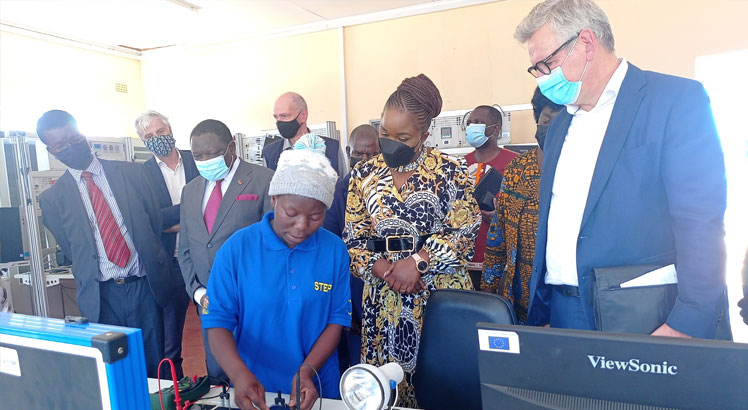Another chance to just be
According to the 2013 International Labour Organisation (ILO) Labour Force Survey, an estimated 88 percent of employed people in Malawi are in informal employment.
The survey was conducted to generate information on employment and unemployment situations in the country as well as other labour force characteristics of the local population aged between 15 and 64 years.
This is why technical colleges were established in the country to boost human resource development by creating skilled manpower, enhancing industrial productivity and improving the quality of life for those people working in the informal economy.

To facilitate this process, government established the Technical, Entrepreneurial and Vocational Education and Training Authority (Teveta) in 1999 to regulate and improve standards in technical colleges that offer vocational training to thousands of Malawians.
These technical colleges drill learners in courses such as painting and decoration, automobile mechanics, brick-laying, carpentry and joinery, plumbing and agriculture, among others, at a lower cost than in public and private universities.
For a long time in Malawi, workshops that are usually filled with complicated machinery requiring knowledge and skills in science were believed to be no-go zones for females
In 2019, Balaka District received a K500 million 140 student capacity Khwisa Community Technical College from Teveta constructed under the Malawi Government Community Colleges Programme.
This moved some young women, including 26-year-old Esther Chande, who hopes the community technical college presents her with a second chance to be financially independent and self-reliant.
The mother of two explains that after rushing into marriage, she realised that her life did not have any security at all following numerous futile applications for training in the Malawi Defence Force and Malawi Police Service.
“For 10 years after writing my MSCE [Malawi School Certificate of Education] examinations in 2009, I worked as a stand-in buyer for some Indian traders who had contracts with farmers. This was an effort to raise funds for my tertiary education after secondary school,” the now Level Two plumbing student at Khwisa Community Technical College narrates.
Adjusting to provide for herself away from home—coupled with minimal wages and a temporary seasonal job—made Esther consider equipping herself with further academic training to act as an insurance in times of unforeseen circumstances.
However, as she sits under a mango tree in a relaxed posture on a scorching sunny day, Esther—clad in her blue worksuit—today reminisces on her life’s journey with a bright smile and reaffirms that she is ready to push through her technical studies to the end.
Twenty three-year-old Shahida Duya echoes Esther’s story of job disappointment and says the opportunity to sharpen her capabilities is granting her access to a new perspective in life.
“In 2017 when I was in Form Three, I got pregnant and had to take a break from school for a year and later when my MSCE results were out, I did not do well. When I got word that a technical college was opening in my area, I decided to enrol after so many job rejections over the years,” she explains.
However, for Tawina Magola, a Level Two Renewable energy student, studying at the college was a matter of convenience as she initially had her mind set on studying nursing.
The 24-year-old says just as she was set to pursue her dream career, she was told her family would not afford to sponsor her so she decided to pursue the next best opportunity that Khwisa Community Technical College presented her.
Stella Mtalika, 27, who is also a student at the technical college, shares the same story of disappointments like the other girls and says her past experiences no longer haunt her. She is also not intimidated to share a class with a majority of males.
“Even though I have worked previously and I am a mother now, I have learnt to set all that aside to accustom myself to the life of a student while trusting the process like a child. Being among the nine girls in a class of 25 makes me feel as an achiever,” she states.
The 2020 World Bank Steps development project indicates a 37 percent total enrolment of girls in technical colleges in Malawi, up from 31 percent in the previous year.
Still more, this is not impressive of the female gender that forms about 51.48 percent of Malawi’s population, as per the 2018 Malawi Population and Housing Census report.
During the handover of equipment from the European Union through Skills and Technical Education Programme to 28 technical colleges benefiting from the project, Deputy Minister of Labour Vera Kamtukule said the government is dedicated to removing barriers against girls by introducing more scholarships to make the technical and vocational skills sector attractive to women.
“Girls need these skills for them to be economically empowered and independent while creating jobs for others and we are dedicated to making this a reality,” she said.





